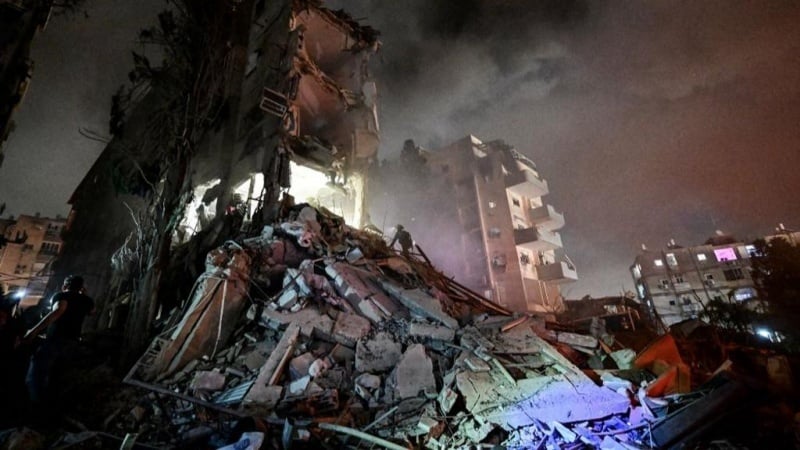Wall Street Journal reveals: The secret to Iran’s success in missile war
-

Missiles of Iran penetrate advanced air defense systems of Israel
Pars Today – The Wall Street Journal, in an exclusive report, revealed that Iran succeeded in its recent war by using trial-and-error tactics to find gaps in Israel’s advanced air defense systems and to penetrate them.
According to Pars Today, citing Fars News Agency, the 12-day war between Iran and the Zionist regime in June 2025 once again demonstrated that even the world’s most advanced missile defense systems are vulnerable to complex and targeted attacks.
Based on an investigative report by the Wall Street Journal, which analyzed data from reputable Israeli and American institutions, Iran managed to pinpoint weaknesses in Israel’s air defense and penetrate them.
The report states that Israel’s air defense systems—including the Iron Dome, "Arrow 3," and "David’s Sling," developed in close cooperation with the U.S.—are among the world’s best and most sophisticated missile defense systems. However, the Wall Street Journal, citing experts from the RAND Corporation and other military analysts, writes that no defense system, no matter how advanced, is entirely flawless, and "every system ultimately has gaps."
The American newspaper reported that Iran’s greatest success came on June 22 (two days before the war ended), when 10 out of 27 missiles launched hit targets in Israel. Israel has refused to provide further details on these statistics.
Many experts, however, argue that the Israeli regime significantly downplays the numbers, and the scale of destruction and reconstruction requests recorded in the regime indicates that the number of successful Iranian missile strikes was far higher.
Israel’s air defense: Advanced yet penetrable
Raphael Cohen, a senior analyst at the RAND Corporation (a Pentagon-affiliated think tank), stated: "Even Israel’s advanced missile defense systems will ultimately have gaps. The key point is that any air defense system should rely on the cumulative effect of multiple layers rather than being flawlessly perfected in a single layer."
The Wall Street Journal added that during the war, an analysis of Israel’s official statements showed a decline in interception rates. The Israeli military had claimed to intercept 90-95% of Iran’s missiles, but after the ceasefire on June 24, this figure dropped to 86%.
Iran’s new tactics in aerial warfare
According to the report, Iran significantly altered its tactics during the war. By increasing the diversity and dispersal of missile launch sites, using longer-range and more advanced missiles like the "Fattah-1," and shifting from large-scale nighttime attacks to smaller daytime waves, Iran managed to double its penetration rate of Israel’s air defense.
Data from the JINSA institute showed that in the first half of the war, 8% of Iran’s missiles bypassed Israel’s interceptors, but this figure rose to 16% in the second half.
A threat to regional security and lessons for the world
The report further states that Iran’s relative success in overcoming the Zionist regime’s air defense demonstrates that future wars, especially in regions with complex defense systems, could become more challenging.
Security experts believe this battle served as a "learning curve" for both sides—Iran worked to improve its attacks, while Israel sought to strengthen its defenses.
The U.S. moves toward developing a 'Golden Dome'
In response to similar threats, the United States has launched a massive $175 billion project to develop a "Golden Dome" missile defense system to protect its skies. However, America’s vast geographical size makes its air defense far more challenging than Israel’s.
Reactions and future prospects
According to the report, the Israeli military has cautiously discussed interception statistics, only stating that it will not release further details. Meanwhile, both Iran and the Zionist regime are reassessing their aerial capabilities to be better prepared for potential future conflicts.
MG/ME


